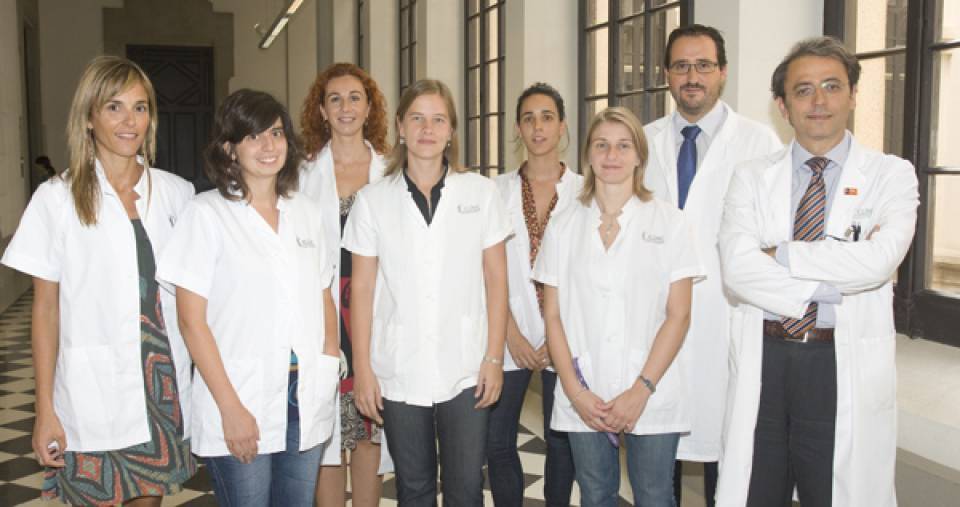Intrahepatic cholangiocarcinoma (ICCA) is an aggressive tumor, difficult to detect in early stages and represents the 10% of all liver cancers (about 70,000 cases per year worldwide). Surgery is the only therapeutic option in this cancer, but it is limited to those patients in early stages of the disease, when it is difficult to detect. The research in this field is focused in the knowledge of the molecular mechanisms of this cancer to develop effective treatments.
In this study researchers performed molecular studies with tissues from 107 patients with ICCA, the total RNA was extracted and then sequenced. They have found a new genetic alteration, a fusion protein called FGFR2-PPHLN1, which has oncogenic activity –promotes the tumor by itself-, which occurs in 16% of patients and that can be blocked by a FGFR2 inhibitor that is already used for other tumors. Furthermore, the protein FGFR2 has another type of fusion that, along with the recently discovered, it is found in 45% of patients. Furthermore, they have also identified a mutation in the ARAF gene that occurs in 11% of cases and, despite of not being oncogenic, promotes tumor cells proliferation.
With this massive sequencing, they have described for the first time a map of all the molecular alterations that may occur in patients with ICCA in which there are a total of 9 alterations that are found in 70% of these tumors and may represent a therapeutic opportunity. "This is the most important discovery made on mutations in cholangiocarcinoma and will radically change the treatment of this disease", explains Dr. Llovet.
Thus, in this paper two new genetic alterations in the ICCA have been described, one of which can be blocked by an inhibitor that has already demonstrated its efficacy in vitro. Researchers have also mapped all the known genetic alterations and their frequency in this type of tumor. With these results, an international Phase II clinical trial has been launched to test the efficacy of the FGFR2 inhibitor in patients.
Article Reference:
Daniela Sia, Bojan Losic, Agrin Moeini, Laia Cabellos, Ke Hao, Kate Revill, Dennis Bonal, Oriana Miltiadous, Zhongyang Zhang, Yujin Hoshida, Helena Cornella, Mireia Castillo-Martin, Roser Pinyol, Yumi Kasai, Sasan Roayaie, Swan N. Thung, Josep Fuster, Myron E. Schwartz, Samuel Waxman, Carlos Cordon-Cardo, Eric Schadt, Vincenzo Mazzaferro, Josep M. Llovet
Nature Communications 6, Article number: 6087, doi:10.1038/ncomms7087
Published 22 January 2015

